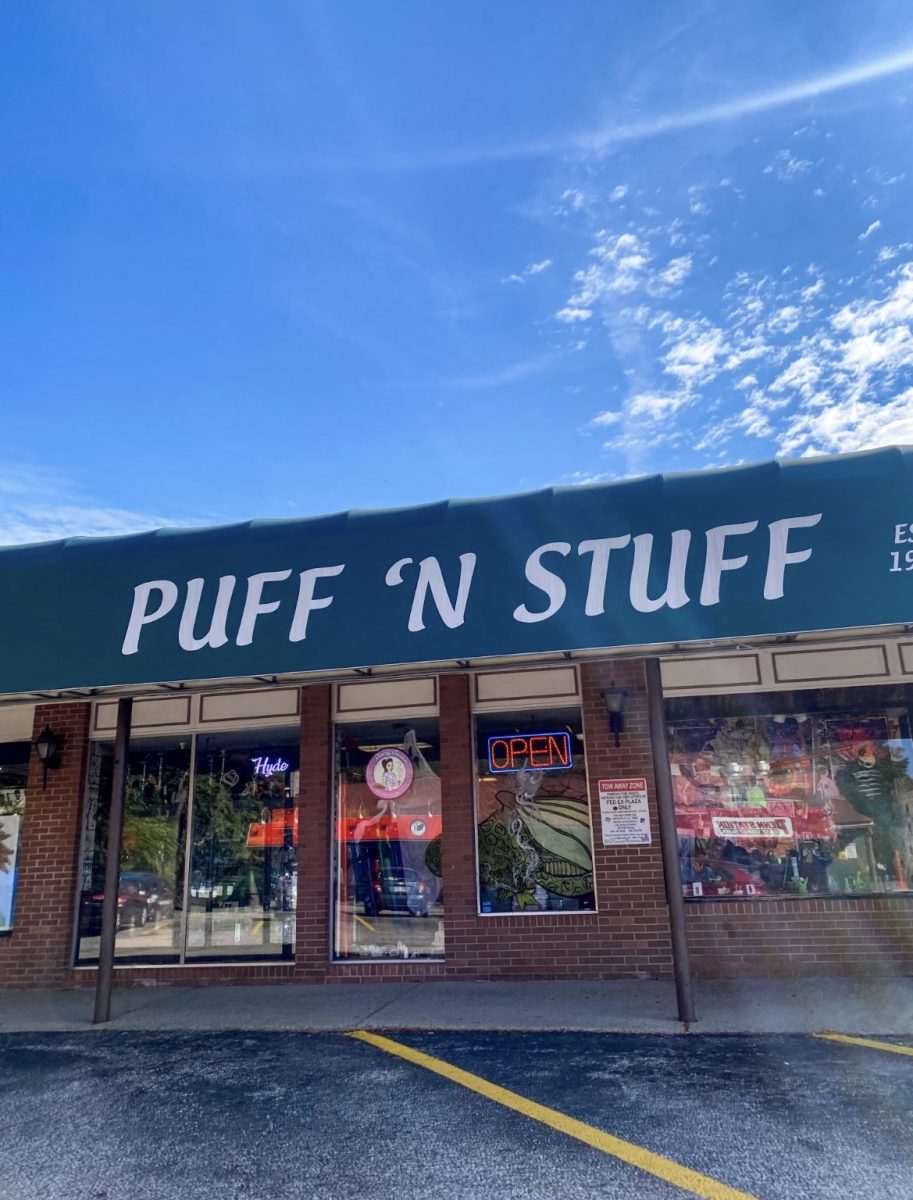The city of Kent will see a limit to the number of tobacco and vape retailers in operation in the coming years.
On Aug. 16, Kent City Council voted on an ordinance brought forth by the Kent City Health Department to limit the number of retailers selling tobacco and vape products in the city.
Joan Seidel, the city of Kent health commissioner, said the ordinance was developed out of concern regarding the number of vape shops the city currently possesses.
“We were concerned about the concentration, just how many of these shops are opening,” Seidel said. “Because the more that there is availability, the easier they are to access and the more likely people will start using. So we wanted to try to limit the density.”
Jack Amrhein, the Ward 2 councilman, said he was also concerned about the number of vape shops in the city.
“The reason we are doing that is that there seems to be, in my opinion, a glut of vape shops,” Amrhein said. “My question is, how many do we need? They are not attractive.”
Jae Lerer, manager of Puff ‘N Stuff, a vape shop located off Main Street in Kent, said he is not worried about competition from other stores, but he agrees the number of shops in town is too high.
“They’re really just competing with each other at this point, and at some point something is going to give,” Lerer said. “The market cannot sustain this many shops, especially if that is all they are really geared toward.”
Currently, there are 27 vape and tobacco retailers located in Kent. The ordinance would reduce that number to 20 shops. Existing shops will remain in operation as long as they are following the law, Amrhein said.
The “None for under 21” ordinance in Kent prohibits the sale of tobacco products to anyone who is under the age of 21. The state of Ohio also enforces the “Tobacco 21” Law, which passed in October 2019.
The health department will be doing compliance checks to ensure that all retailers are remaining above the law, otherwise, consequences will occur, Seidel said.
“We started doing compliance checks to see if retailers were selling to people under 21,” Seidel said. “Almost every single time we did compliance checks, somebody was selling to an underage person.”
However, these compliance checks should not come as a surprise to retailers, as there were some previous measures taken.
“We did not want to just go straight to [pulling licenses].” Seidel said. “We knew we needed to do some education, so we have reached out to all of the retailers to provide the standard education.”
Tianyuan Guan, an assistant professor in biostatistics in the College of Public Health, said education is an important step in getting people to stop vaping.
“I think education is very important, so far we all know that e-cigarettes are bad for health,” Guan said. “We need to have a good policy or some very nice education. People will make their judgment.”
After education and compliance checks, retailers can eventually have their tobacco licenses revoked if they are not following city guidelines.
“There is a stepwise fine that myself as the Health Commissioner can institute if we find people being non-compliant,” Seidel said. “There are several stepwise increases in the fine levels. Then eventually I can pull their license.”
Lerer said he agreed with this ordinance and what it would do for the city.
“I think it is smart,” Lerer said. “I think it is a really smart way to make sure everyone is remaining above board. There should be more than just a small fine for breaking that law.”
Similarly, Armhein agreed the ordinance is a good step for stopping a generational habit.
“Of course, when I was younger, there were kids 12–13 years old who were smoking,” Armhein said. “I don’t know how you stop something like this, but making the availability more difficult. I think is the answer.”
Last year, the city council passed the Tobacco Retail licensing program. This program guaranteed tobacco retailers were properly educated and had their license before beginning operation.
For anyone looking to open a vape or tobacco shop, this program and the new ordinance passed in August is important to consider because they would need to obtain their license from the health department prior to opening.
There will not be any new shops opening up anytime soon, Amrhein said.
“[A new vape shop] couldn’t open up, because they would need to get a license from the board of health and they are not going to issue any more licenses,” Amrhein said.
Lerer said he is not worried about the future of Puff ‘N Stuff with the ordinance put in place.
“I’m not too concerned – we have always been above board,” Lerer said. “We have a reputation for being very serious when it comes to carding, not having underage sales, and not allowing proxy sales.”
A proxy sale occurs when someone who is of the age to purchase nicotine products purchases them for someone who is underage.
One goal of the ordinance is to limit the amount of underage people who are purchasing nicotine products by limiting their access to these products. This includes banning vape shops from being within 1,000 feet of any “child-oriented facility.”
“We know that there are retailers within a thousand feet of elementary schools, daycare centers and programs that host children,” Seidel said. “We want to try and limit access, especially to those who are under age 21.”
Shops currently within 1,000 feet of these facilities will remain in operation due to the grandfathering clause. If the business were to switch ownership, they would not be given a new tobacco license, Seidel said.
“We are catching people selling to underage people,” Seidel said. “We have had parents call us and say, ‘Hey my 7 and 8-year-olds were able to buy vapes at the local gas station.’”
Amrhein said this ordinance is a good step in making Kent a healthier city.
“I just think that we need to allow our kids to be kids, and to be healthy and run around and play,” Amrhein said. “When you have 10 and 12-year-olds who are vaping, this is not a good thing.”
Guan noted there are also health risks involved with using vape and nicotine products.
“A bunch of people, more than 60%, are trying e-cigarettes as a beginner. Most of them think e-cigarettes are less harmful compared to traditional ones,” Guan said. “From my point of view, I don’t think so.”
The chemicals inside the vapes are bad for people’s health, and it can be hard for people to determine how much they are using per day if they are vaping, Guan said.
“In America and some other countries in the world, we have a very clear definition of heavy smoker for [cigarette use],” Guan said. “But for e-cigarette smoking, they are using e-liquid. A lot of the stuff in the e-liquid, they cannot control the volume, how much they use per day.”
The next step in this process would include a city-wide flavor band, Seidel said.
Some argue the abundance of differing vape flavors is used to target children specifically, making them want to use the products more.
“We know that watermelon flavored and Pop-tart flavored vapes are not geared toward adults, they are geared towards getting children hooked,” Seidel said.
Guan agreed.
“They cannot make a clearer sign that it is for young people,” Guan said. “They have more than 200 flavors.”
Regarding the flavor ban, Lerer had a different opinion.
“Why are they going after these and not going after bars who sell candy drinks and stuff like that,” Lerer said. “Alcohol is still a problem, it can lead to other issues just like nicotine. But why is it only focusing on [flavored vapes]?”
Limiting the amount of people who use the products would hopefully be the end result of passing this ordinance, Seidel said.
“Ohio does have a QUIT line. They even have an option for texting so if you don’t want to have to speak with somebody, you could text,” Seidel said. “In certain instances, they will provide free nicotine replacement patches.”
Olivia Montgomery is a reporter. Contact her at [email protected].






















